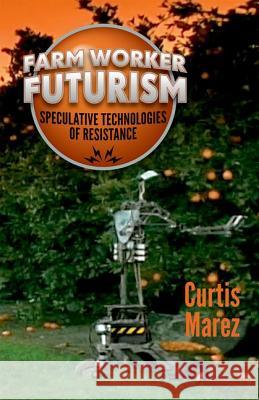Farm Worker Futurism: Speculative Technologies of Resistance » książka
Farm Worker Futurism: Speculative Technologies of Resistance
ISBN-13: 9780816672318 / Angielski / Twarda / 2016 / 232 str.
Farm Worker Futurism: Speculative Technologies of Resistance
ISBN-13: 9780816672318 / Angielski / Twarda / 2016 / 232 str.
(netto: 354,50 VAT: 5%)
Najniższa cena z 30 dni: 367,68
ok. 30 dni roboczych.
Darmowa dostawa!
When we think of literature and film about farm workers, The Grapes of Wrath may come to mind, but Farm Worker Futurism reveals that the historical role of technology, especially new media, has in fact had much more to do with depicting the lives of farm laborers--Mexican migrants in particular--in the United States. From the late 1940s, when Ernesto Galarza led a strike in the San Joaquin Valley, to the early 1990s, when the United Farm Workers (UFW) helped organize a fast in solidarity with janitors at Apple Computers in the Santa Clara Valley, this book explores the friction between agribusiness and farm workers through the lens of visual culture.Marez looks at how the appropriation of photography, film, video, and other media technologies expressed a "farm worker futurism," a set of farm worker social formations that faced off against corporate capitalism and government policies. In addition to drawing fascinating links between the worlds envisioned in UFW videos on the one hand and visions of Cold War geopolitics on the other, he demonstrates how union cameras and computer screens put the farm worker movement in dialogue with futurist thinking and speculative fictions of all sorts, including the films of George Lucas and the art of Ester Hernandez. Finally Marez examines the legacy of farm worker futurism in recent cinema and literature, contemporary struggles for immigrant rights, management-labor conflicts in computer hardware production, and the antiprison movement.In contrast with cultural histories of technology that take a top-down perspective, Farm Worker Futurism tells the story from below, showing how working-class people of color have often been early adopters and imaginative users of new media. In doing so, it presents a completely novel analysis of speculative fiction's engagements with the farm worker movement in ways that illuminate both.











